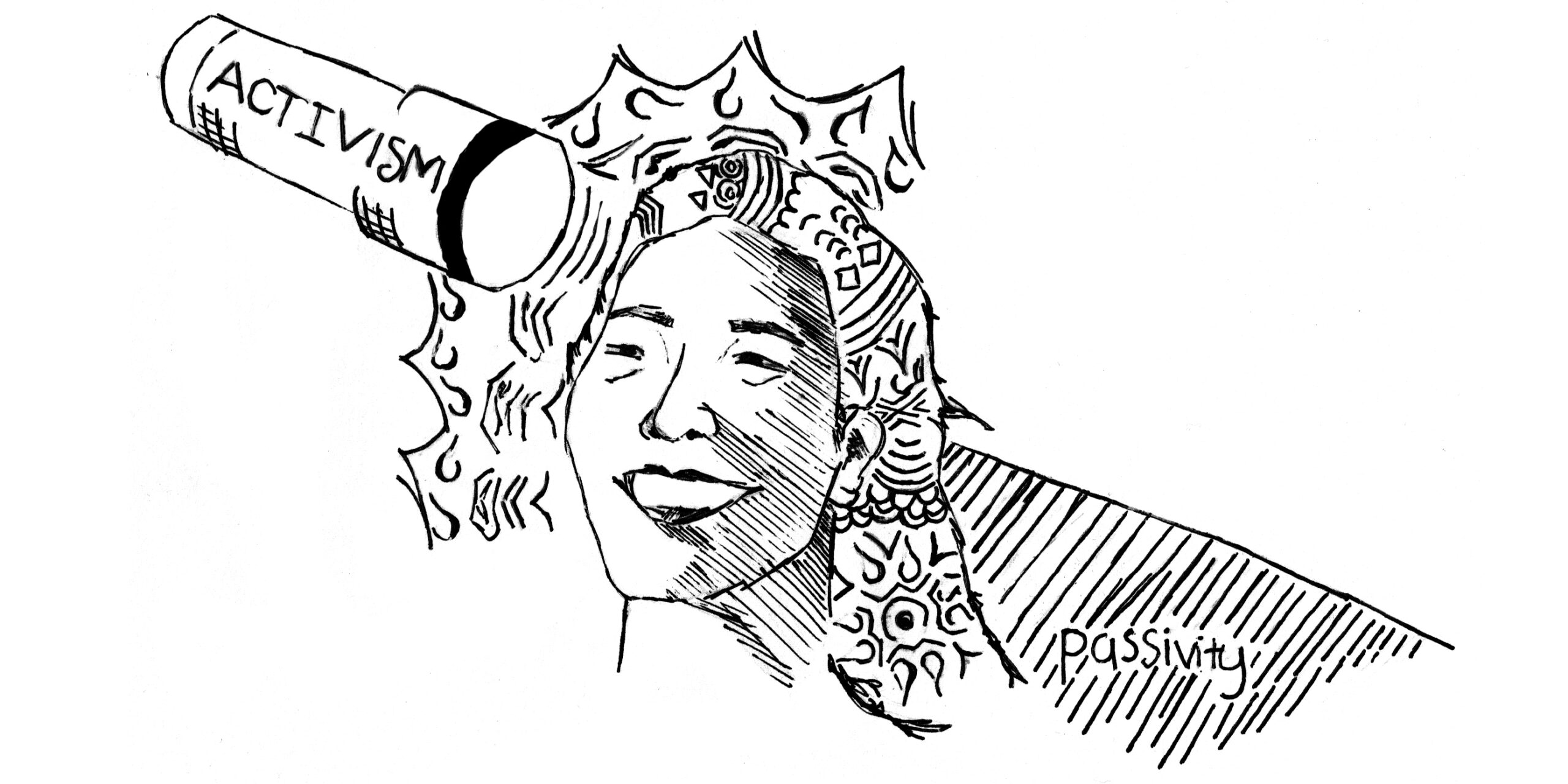Discussions from brunch: thoughts on passivity and activity at Bowdoin
March 2, 2018
 This
piece represents the opinion of the author
.
This
piece represents the opinion of the author
.
I’m on the sailing team but didn’t attend the “gangster” party two years ago. My absence wasn’t a conscious choice. In other words, it wasn’t out of protest but was instead due to the mundane yet gravitational pull of looming assignments.
Passive complicity in racism is still racism. In fact, passive racism is dangerous because we believe we’re doing nothing wrong. It gives the illusion of nonexistence. This passive acceptance and perpetuation of behaviors over time is what defines the culture of a community. It becomes the unnoticed normalization of institutionalized marginalization we thought we knew how to recognize.
As an adopted Chinese woman, I have struggled to figure out where I stand in the conversations of people of color. I grew up with a lot of white privilege, which was hard for me to understand because when people saw me they saw Chinese, even though I felt more in tune with my “white-ness” than my “Asian-ness.” Yet during the time of the “gangster” party, I became acutely aware of my color. I looked around at the team I loved and felt alone.
We’re each made up of intersecting facets and layers of identity. Together, these layers create the dynamic mosaic that makes us who we are, but the beautifully intricate kaleidoscope you create for yourself is never guaranteed to be seen by others. Assumptions are born between the disconnect in the identities we choose for ourselves and the identities that others choose for us. No one likes having assumptions made about them, just as I hate when people assume I’m my mom’s foreign exchange student instead of her daughter. The way we stop making these assumptions is through conversations.
A conversation requires dialogue between people. The challenging and reassuring part of this is that we do it together, but there is no “we” without “you.” We enjoy calling ourselves activists, thinking that, because we understand the goodness of a cause and wrongness of a behavior, we’ve done our part. We are practicing passive activism. Passivity is easy, but passivity is not enough.
It’s easy to say, “I stand for equality” but not to know what equity looks like. It’s easy to forget your racial privilege when your daily reality does not remind you of those who do not have it. It’s easy to say you want reconciliation and closure for this campus but not to want to be the one to do it. It’s easy to share your opinions with your friends, because they will not judge you too harshly for the candid opinions you share or confusion you express. It’s easy to put your head down and try and get on with life when you have the privilege to do so.
It’s hard to hear people call you and the team that you love racist, even though you believe you are good people. It’s hard to realize that they were right and that good people make mistakes, but your ignorance will never erase the pain caused by your actions. It’s hard to accept your mistakes, because acceptance means you understand, and understanding takes work. It’s hard to confront your own privilege, because privilege is not something that you can control and therefore cannot change—but it is something you can decide how to use. It’s hard to see things about yourself that you don’t like and not know how to change them. It’s hard to feel like you’ve lost your voice, because you’ve become part of a larger narrative—a narrative in which people feel they have the right to make arguments for you even though you never asked them to and did not want them to. It’s hard to be overwhelmed and not know what you need to do except move forward, but not to know where forward is.
I do not claim to be an expert on talking about race, nor do I claim to have formulated answers to all the questions that both you and I have. All I know is that the only way we learn from one another and learn how to have these conversations is by having them—perhaps over brunch. I am not satisfied to be a passive participant in my life, are you?
Nora Cullen is a member of the Class of 2018.
Comments
Before submitting a comment, please review our comment policy. Some key points from the policy:
- No hate speech, profanity, disrespectful or threatening comments.
- No personal attacks on reporters.
- Comments must be under 200 words.
- You are strongly encouraged to use a real name or identifier ("Class of '92").
- Any comments made with an email address that does not belong to you will get removed.


hello nora, i’ve literally never commented on the bowdoin orient website before… but, as a former sailor and korean adoptee — thank you for your article! everything is so beautifully put.